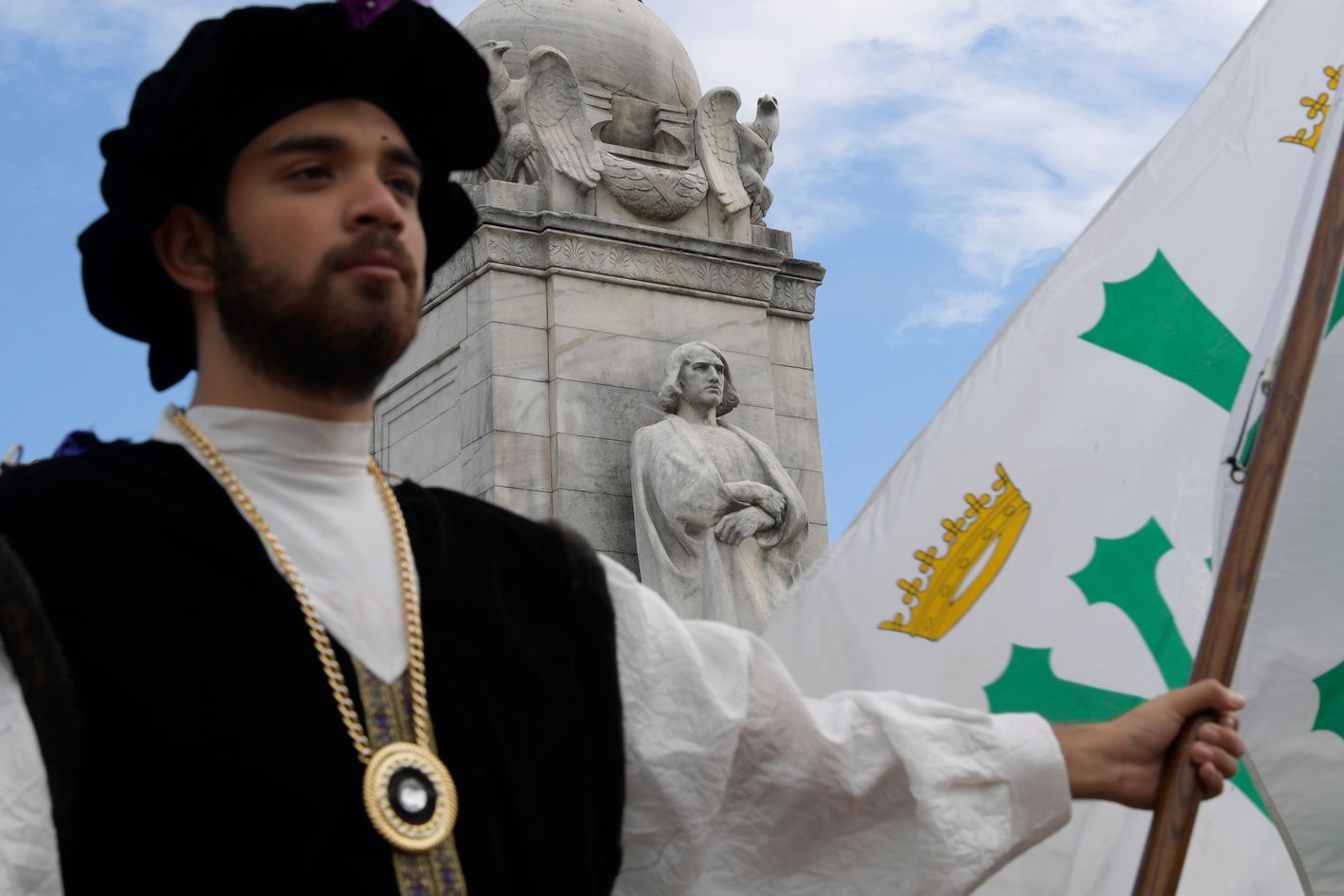Photo: Lenin Nolly/Sipa USA/AP Photo
Dust off your Italian flags and, uh, Niña, Pinta, and Santa María costumes? President Trump just declared on Truth Social that Columbus Day is back!
How is “Christopher” making a “major comeback”? Trump didn’t say. Why is the president thinking about an October holiday in the middle of spring? We don’t know. And when was Columbus Day canceled? Well, it wasn’t.
Trump was clearly alluding to the fact that an increasing number of states and cities celebrate Indigenous Peoples Day, either alongside or in lieu of Columbus Day. However, the old federal holiday was never canceled. In 2021, Joe Biden became the first president to commemorate Indigenous Peoples Day with a presidential proclamation — but each year, he also released a Columbus Day proclamation.
Throughout the Biden administration, the federal holiday that falls on the second Monday in October remained Columbus Day, and no president can unilaterally change that. As Congress.gov explains, federal holidays are designated through congressional legislations that the president can sign or veto, and states can set their own holidays:
Although frequently called public or national holidays, these celebrations are only legally applicable to federal employees and the District of Columbia, as the states individually decide their own legal holidays. … Neither Congress nor the President has asserted the authority to declare a “national holiday” that would be binding on the 50 states, as each state individually determines its legal holidays.
Columbus Day has long been controversial, since the explorer never landed on the North American mainland and was a “homicidal tyrant who initiated the two greatest crimes in the history of the Western Hemisphere, the Atlantic slave trade and the American Indian genocide,” as Vox explained in 2015. Columbus Day proponents say it’s mainly about celebrating Italian heritage and note the holiday began as part of an attempt to stop racist violence against Italian Americans. The AP recapped the holiday’s origins:
… the native of Genoa became increasingly commemorated in the United States as Italian immigrants flocked to the country and politicians sought to win their support.
Indeed, it was the lynching of 11 Italian-American immigrants in New Orleans in 1891 that led to the first Columbus Day celebration in the United States, led the following year by President Benjamin Harrison. President Franklin D. Roosevelt designated Columbus Day as a national holiday in 1934.
But this complex history has little to do with Trump’s Truth Social declaration. He wasn’t looking to sort out minor details like whether Columbus Day is or is not a federal holiday — he just wanted to score a conceptual victory against “wokeness.”

